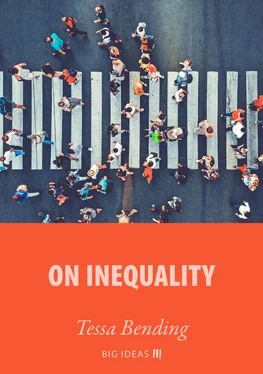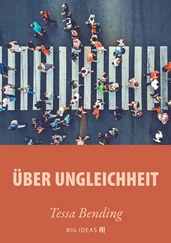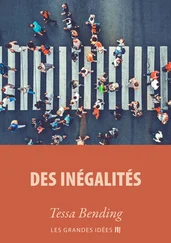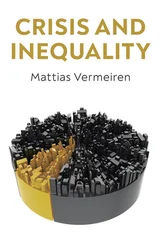BIG IDEAS BIG IDEAS Does Europe have an inequality problem? Amid the COVID-19 pandemic, many Europeans are certainly struggling. The rise of populist movements is another signal that something is awry. Many Europeans no longer see their economy as fair. But is this a problem of too much inequality, or just a problem of ideology? Is inequality even a bad thing? We need to consider the statistics on economic inequality, but also look beyond towards the lived experience of trying to make ends meet. We need to consider different ideas on the impact and significance of the inequality we see. Does inequality drive entrepreneurship, and thus innovation, through the struggle for upward social mobility? Or does inequality affect life chances, becoming entrenched, blocking social mobility and innovation? And does anyone really need a billion euros? If we have a euro to spare, do we create more happiness by giving it to the rich or to the poor? An old, once infamous, now oft-forgotten question in economics. Tessa Bending conducts research on social inclusion, social development and impact measurement at the Economics Department of the European Investment Bank (EIB). The department provides in-depth analysis on critical investment issues to support international policy debates. This is the sixteenth essay in the Big Ideas series created by the European Investment Bank. The EIB has invited international thought leaders and experts to write about the most important issues of the day. These essays are a reminder that we need new thinking to protect the environment, promote equality and improve people’s lives around the globe.
A DIVIDED EUROPE?
IS INEQUALITY GOOD FOR GROWTH?
DOES ANYONE NEED A BILLION EUROS?
DEMOCRACY, EUROPE’S ANSWER TO THE PROBLEM OF INEQUALITY
NOTES
BIOGRAPHY
About the European Investment Bank
The European Investment Bank is the world’s biggest multilateral lender. The only bank owned by and representing the interests of the EU countries, the EIB finances Europe’s economic growth. Over six decades the Bank has backed start-ups like Skype and massive schemes like the Øresund Bridge linking Sweden and Denmark. Headquartered in Luxembourg, the EIB Group includes the European Investment Fund, a specialist financer of small and medium-sized enterprises.
ON INEQUALITY
Tessa Bending

Disclaimer: The opinions expressed in this publication are those of the authors and do not necessarily reflect the position of the EIB.
Does Europe have an inequality problem? Amid the COVID-19 pandemic, many Europeans are certainly struggling. The rise of populist movements is another signal that something is awry. Many Europeans no longer see their economy as fair. But is this a problem of too much inequality, or just a problem of ideology? Is inequality even a bad thing?
We need to consider the statistics on economic inequality, but also look beyond towards the lived experience of trying to make ends meet. We need to consider different ideas on the impact and significance of the inequality we see.
Does inequality drive entrepreneurship, and thus innovation, through the struggle for upward social mobility? Or does inequality affect life chances, becoming entrenched, blocking social mobility and innovation?
And does anyone really need a billion euros? If we have a euro to spare, do we create more happiness by giving it to the rich or to the poor? An old, once infamous, now oft-forgotten question in economics.
Tessa Bending conducts research on social inclusion, social development and impact measurement at the Economics Department of the European Investment Bank (EIB). The department provides in-depth analysis on critical investment issues to support international policy debates.
This is the sixteenth essay in the Big Ideas series created by the European Investment Bank. The EIB has invited international thought leaders and experts to write about the most important issues of the day. These essays are a reminder that we need new thinking to protect the environment, promote equality and improve people’s lives around the globe.
Конец ознакомительного фрагмента.
Текст предоставлен ООО «ЛитРес».
Прочитайте эту книгу целиком, купив полную легальную версию на ЛитРес.
Безопасно оплатить книгу можно банковской картой Visa, MasterCard, Maestro, со счета мобильного телефона, с платежного терминала, в салоне МТС или Связной, через PayPal, WebMoney, Яндекс.Деньги, QIWI Кошелек, бонусными картами или другим удобным Вам способом.













